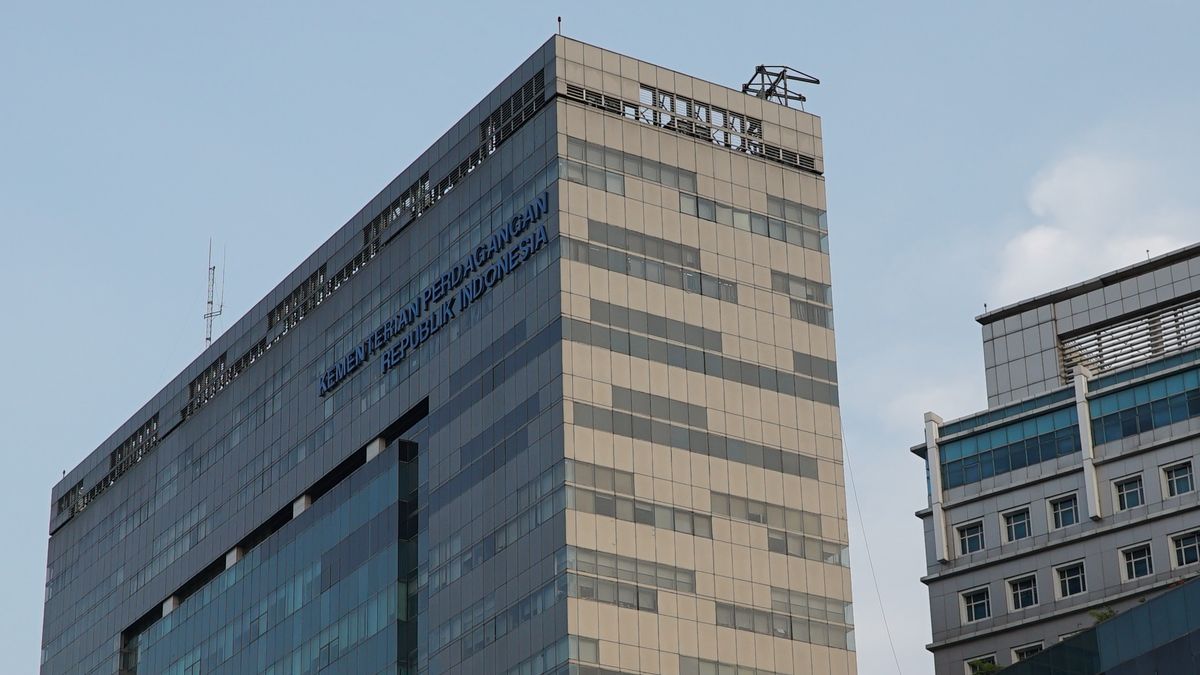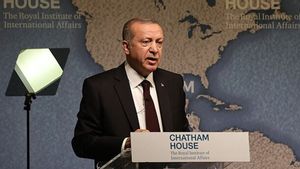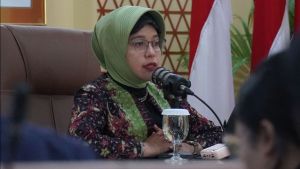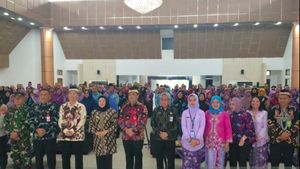JAKARTA - Indonesian crude palm oil (CPO) products often face trade barriers, especially from European Union (EU) countries. This is because its high productivity is difficult to match with similar vegetable oil products produced by the EU.
Director General of Foreign Trade of the Ministry of Trade, Wisnu Wardhana, said that Indonesian CPO products have so far experienced export barriers in the United States, Russia, France and the European Union. This is quite surprising because the obstacles for other vegetable oil products are not as many as those experienced by CPO.
"We often get disturbances from environmental, health, sustainability, and employment issues. This is a challenge for us, even though we already have ISPO certificates, delaying the expansion of oil palm lands to replanting plantations, ”he said in Jakarta, Thursday, December 19.
Wisnu added that the Indonesian government could not remain silent in facing trade barriers by other countries. This is because CPO plantations are proven to house 2.6 million independent smallholders and 4.3 million workers in other sectors.
Meanwhile, the CPO processing industry absorbs 4.2 million direct workers and 12 million indirect workers. The CPO industry also contributes 3.5 percent of the total national gross domestic product (GDP).
As for the data held by the Ministry of Trade, one of the trade barriers is carried out by the US by imposing anti-dumping duties (BMAD) for biodiesel. Meanwhile, in France there are obstacles in the form of eliminating tax incentives for biofuels from palm oil. Russia has also pursued a similar policy.
Furthermore, in the European Union, the disturbance experienced by CPO and its derivative products is quite diverse, including accusations of subsidies for biodiesel, Renewable Energy Directive (RED) II, limits on the content of 3-monochloropropanediol (MCPD) and glycidyl ester (GE) in palm oil products.
Economist of the Institute for Development of Economics and Finance (Indef) Ahmad Heri Firdaus said the role of the palm oil industry is very crucial for the national economy. In fact, the export value of oil palm plantations or crude palm oil (CPO) outperforms exports of oil and gas production.
Heri admitted that optimizing the export of CPO products could improve the trade balance (CAD) deficit. "Last year, our CAD was in deficit of US $ 8 billion. By boosting exports of oil palm plantations, we can improve our CAD, ”said Heri.
In addition, continued Heri, CPO derivative products can also strengthen the structure of the domestic industry. For this reason, the government and the palm oil industry must focus on improving the downstreaming of CPO products.
"The downstream exports are getting less. CPO can be a food, cosmetic, energy and chemical product. This is downstream of palm oil, where do we want to focus, "said Heri.
Heri added that the greatest opportunity for downstreaming CPO is in the energy sector. For example, focus on developing the Fatty Acid Methyl Ester (FAME) industry. Moreover, Indonesia's FAME exports only reached 1.6 percent of the world's total exports which reached US $ 45 billion.
"This is a mixture of biofuel (BBN). This export potential is quite wide, given the increasing trend of biofuel use in the world. Currently China, Japan, US and EU are the biggest users of FAME, "said Heri.
According to DPR Commission IV member Daniel Johan, socialization related to the importance of the palm oil industry or CPO for the national economy needs to be promoted massively by stakeholders, including the media.
Moreover, in 2025, when the world's population reaches 8 billion people, it is predicted that there will be an increase in the need for Vegetable Oil Fuels (BBN). "Socialization for the domestic and global community is very important, because in the future, fossil energy needs will be limited," said Daniel.
Moreover, continued Daniel, all relevant stakeholders are expected to be able to socialize and answer environmental and health issues launched by European Union (EU) countries and the United States regarding the impact of using CPO.
In fact, said Daniel, compared to soybean plants or sunflowers, CPO can save more land, so the issue that links CPO with environmental issues is no longer relevant.
"The total vegetable oil land area is 200.5 million ha. CPO is only 20.5 percent or 10 percent. Palm oil can produce 4 tons per hectare, soybean only 0.5 tons per hectare and sunflowers only 0.7 tons per hectare, "said Daniel.
This PKB politician reminded the EU not to hide behind environmental issues to attack the Indonesian CPO trade. "If you want to save the environment, just help Indonesian palm oil. Especially smallholder oil palm, whose productivity is still low at 1.6 million per ha. So, there is no need to increase land, while reducing poverty, ”said Daniel.
Daniel suspects that the current condition is the EU's trade war against Indonesia. Moreover, CPO production reached 41 million tons or controlled 60 percent of the market share and exports reached 32 million tons.
He regretted that even though Indonesia controlled 60 percent of the world's CPO market share, it was unable to control the world price of palm oil. He also questioned, the role of stakeholders such as the Palm Oil Plantation Fund Management Agency (BPDPKS) is not yet optimal.
“I think this doesn't make sense. In the future, it must be addressed. BPDPKS must improve, not only collecting funds, but also aggressively socializing. Strengthen the downstream too, not only CPO, ”concluded Daniel.
The English, Chinese, Japanese, Arabic, and French versions are automatically generated by the AI. So there may still be inaccuracies in translating, please always see Indonesian as our main language. (system supported by DigitalSiber.id)













